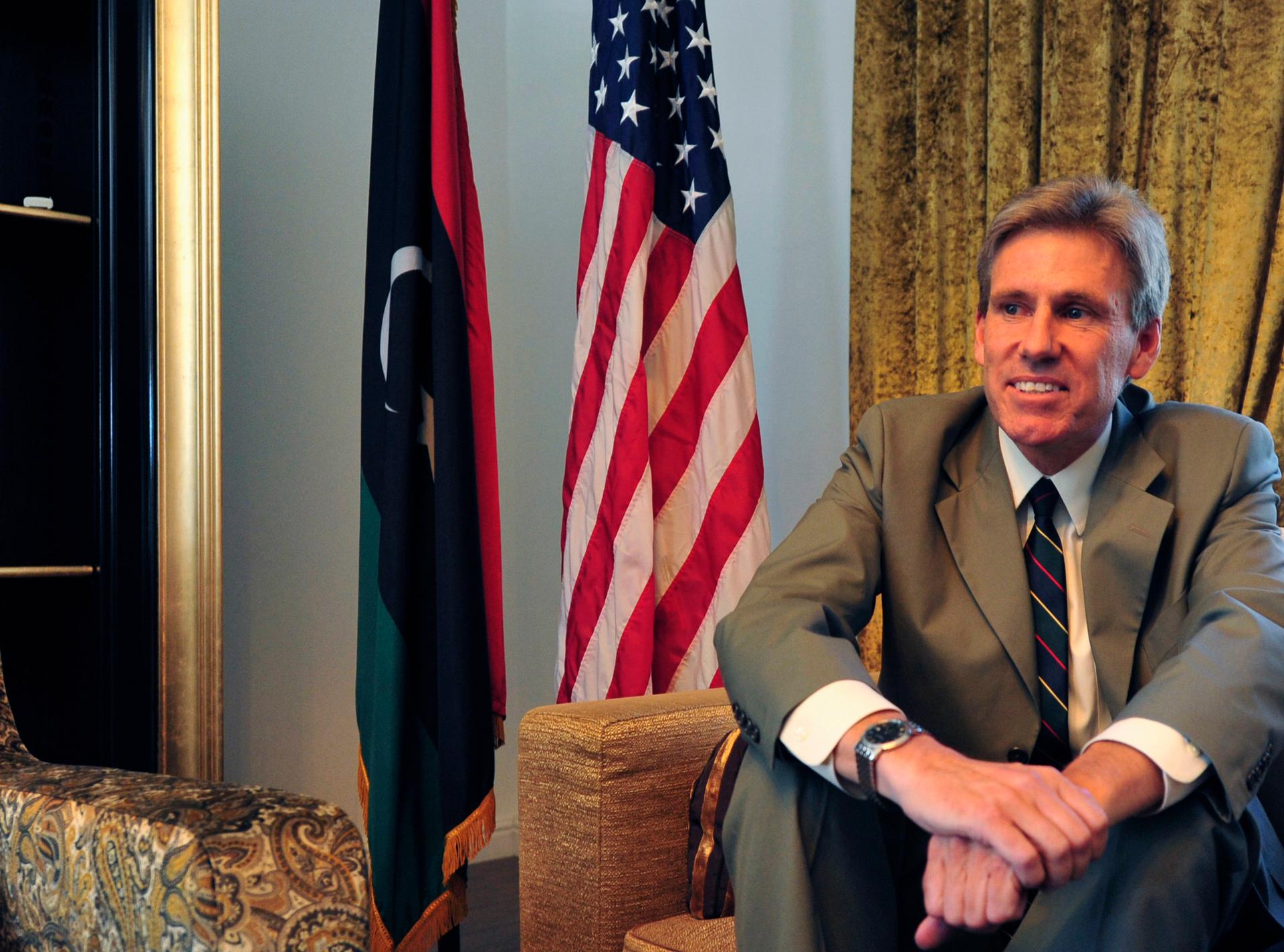U.S. officials indicate al-Qaeda-linked group responsible for deadly Libya consulate attack
Christopher Stevens, the U.S. ambassador to Libya, pictured at his home in Tripoli on June 28, 2012, was killed in an attack on the U.S. consulate in Benghazi on Tuesday. (Photo by Esam Al-Fetori/Reuters.)
American officials Wednesday were trying to determine what was behind the attack on the U.S. Consulate in Benghazi, Libya, which took the like of U.S. Ambassador to Libya Chris Stevens.
While initial reports suggested that the attack was an outgrowth of angry protests by Libyans upset about a video deemed offensive to Muslims and produced in the United States, U.S. officials Wednesday afternoon began to let it be known they were looking into the possibility of a connection to the al-Qaeda-affiliated Imprisoned Omar Abdul Rahman Brigades group, which first emerged earlier this year.
The attack came a short-time after a top al-Qaeda leader, Abu Yahya al-Libi, was killed and on the 11th anniversary of the Sept. 11 terrorist attack.
According to The New York Times, officials in Washington have been studying the differences between largely peaceful protests in Cairo and the deadly assault in Libya.
U.S. Secretary of State Hillary Clinton said the attack in Libya was mounted by a small and savage group — not by the people or government of Libya.
“Everywhere Chris and his team went in Libya, in a country scarred by war and tyranny, they were hailed as friends and partners,” Clinton said. “When the attack came yesterday, Libyans stood and fought to defend our post. Some were wounded. Libyans carried Chris’s body to the hospital and they helped rescue and lead other Americans to safety.”
In Libya on Wednesday, several rallies were held in protest of the attack on the consulate — saying that didn’t represent the views or attitude of most Libyans.
Stevens is the first U.S. ambassador to be killed abroad in more than three decades.
In a statement at the White House, President Barack Obama vowed to work with the Libyan government to bring to justice those who led the attack.
The State Department announced that it had closed its facility in Benghazi and evacuated all non-essential personnel from Tripoli. NBC News reported that as many as 200 U.S. Marines were preparing to deploy to the embassy to beef up security. Additional Marines are expected to be deployed to other vulnerable embassies in the region.
Tuesday’s attack followed by less than 24 hours a video statement from al-Qaeda leader Ayman al-Zawahiri, where he called on Libyans, specifically, to avenge the death of al-Libi.
There were reports Wednesday that the U.S. was sending unmanned drones to Libya to scour the desert, looking for people connected to the attacks on the consulate. CNN said it was expected the drones would merely be used to gather intelligence, which would be turned over to the Libyan government to take action.
Four Americans, including Stevens, Sean Smith and two as-yet-unidentified State Department employees, died in the attack.
